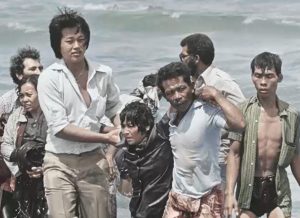Malaysia looking to reform its approach to refugees
Malaysia has quietly launched a national refugee registration system that aims to improve data transparency and complement the work of the UN refugee agency UNHCR in supporting the more than 200,000 who have fled persecution and war in their home countries and found relative sanctuary in Malaysia.
While the fine details of the system remain vague, refugee advocates say the move signals a possible shift toward greater state involvement and accountability in managing migration to Malaysia.
They say that if properly delivered, the system could lead to better service provision, targeted aid distribution and a path toward formal recognition. But they say without accompanying legal reforms, refugees will remain unprotected.
About 200,260 refugees and asylum-seekers are registered with the UNHCR in Malaysia. There are probably thousands more who are not registered.
More than 179,000 are from Myanmar, including 117,670 Rohingya, 29,620 Chin and 31,730 other ethnic minorities. They have fled ethnic violence, forced displacement and persecution.
Others come from more than 50 different countries, including Pakistan, Yemen, Somalia, Afghanistan, Sri Lanka, Palestine, Iraq and Syria.
Men make up 64 per cent of refugees and asylum-seekers, while women account for 36 per cent. More than 50,000 are children under the age of 18, many of whom have never attended school.
Advocates say migration to Malaysia is mostly an act of desperation. Neighbouring countries often turn away refugees or deny long-term protection, and many asylum seekers see Malaysia as a stepping stone to resettlement in third countries. But the reality is that few are successfully resettled.
Malaysia is not a signatory to the 1951 Refugee Convention, so life in the country can be precarious for asylum seekers.
This means refugees and asylum-seekers are considered undocumented immigrants and can be subject to arrest and deportation.
The UNHCR does issue refugee cards, but these offer no protection under Malaysian law. The result of this legal limbo can affect every aspect of daily life.
Refugees are not allowed to work legally in Malaysia with many working in informal sectors with long hours, poor conditions, low wages and no workplace protections.
This means many are subject to wage theft, exploitation and workplace abuse, with little to no recourse.
 Public schools in Malaysia don’t accept refugees but community-based learning centres try to full this gap. Many of these centres are underfunded, overcrowded and not sanction by government.
Public schools in Malaysia don’t accept refugees but community-based learning centres try to full this gap. Many of these centres are underfunded, overcrowded and not sanction by government.
Refugees also do not qualify for public health care. While some clinics treat UNHCR cardholders, the costs remain high for many.
Malaysia does, however, have a well-established civil society and humanitarian sector.
Civil society and humanitarian organizations play an important role in supporting migrants in Malaysia.
El Shaddai, based in Klang, is a group providing education and health care to refugee families, operating 20 centres across Malaysia providing pre-school to diploma-level education.
Tenaganita is a human rights organisation that supports refugees through legal aid, psychosocial counselling and community empowerment. Its works with eight Burmese-led refugee groups to assist in wage negotiation, education access and protection from detention.
The Malaysian Social Research Institute (MSRI) supports refugees through food aid and social service programs, including education, psychological counselling and skills training.
Refugee advocacy group The Borgen Project says that migration to Malaysia will continue as long as regional conflict and instability persist but that the nation has an opportunity to reimagine and improve its approach to refugees.
“Refugees contribute to Malaysian society – they work, raise families and engage in communities – yet outside of the legal framework,” it says.
“Malaysia has the opportunity to lead in South-East Asia by adopting a clear refugee policy. Recognising refugee status, granting work rights and providing access to basic services are essential steps. A legal and humanitarian approach to migration can ensure that the thousands who seek safety in Malaysia are no longer invisible.”
200,000 Invisible Lives: Migration to Malaysia – The Borgen Project












